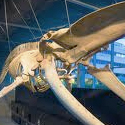Team:British Columbia/Wetlabteam
From 2011.igem.org
| Line 2: | Line 2: | ||
==Team Members== | ==Team Members== | ||
<center><gallery> | <center><gallery> | ||
| - | Image:Gurpal.jpg|Gurpal Bisra: | + | Image:Gurpal.jpg|Gurpal Bisra: My contribution to our wet lab component was to alter a yeast cell to contain the mutant erg20-2 gene instead of the wild type erg20 gene. Erg20 produces ~25% GPP and ~75% FPP molecules in the mevalonate biochemical pathway. GPP is essential to our project because it is the molecule that combines with a synthase in order to yield a monoterpene; where as, FPP does not develop monoterpenes. Since our goal is to mass produce monoterpenes, this mutation is key for our project to be successful. Additionally, I am assisting Samuel Wu to develop plasmids that contain the K6R-HMG2 and IDI1 genes. Their function is to alter the mevalonate pathway to ultimately produce more GPP as well. |
| - | + | ||
| - | My contribution to our wet lab component was to alter a yeast cell to contain the mutant erg20-2 gene instead of the wild type erg20 gene. Erg20 produces ~25% GPP and ~75% FPP molecules in the mevalonate biochemical pathway. GPP is essential to our project because it is the molecule that combines with a synthase in order to yield a monoterpene; where as, FPP does not develop monoterpenes. Since our goal is to mass produce monoterpenes, this mutation is key for our project to be successful. | + | |
| - | + | ||
| - | Additionally, I am assisting Samuel Wu to develop plasmids that contain the K6R-HMG2 and IDI1 genes. Their function is to alter the mevalonate pathway to ultimately produce more GPP as well. | + | |
Image:Daisy.jpg|Daisy Ji | Image:Daisy.jpg|Daisy Ji | ||
Revision as of 01:32, 5 August 2011

Team Members
Gurpal Bisra: My contribution to our wet lab component was to alter a yeast cell to contain the mutant erg20-2 gene instead of the wild type erg20 gene. Erg20 produces ~25% GPP and ~75% FPP molecules in the mevalonate biochemical pathway. GPP is essential to our project because it is the molecule that combines with a synthase in order to yield a monoterpene; where as, FPP does not develop monoterpenes. Since our goal is to mass produce monoterpenes, this mutation is key for our project to be successful. Additionally, I am assisting Samuel Wu to develop plasmids that contain the K6R-HMG2 and IDI1 genes. Their function is to alter the mevalonate pathway to ultimately produce more GPP as well. |
British Columbia Team member 3.png
Marianne |
British Columbia Team member 4.png
Vicki |
|
British Columbia Team member 5.png
Joe: I am a 4th year science student at UBC, studying microbiology and genetics. |
British Columbia Team member 6.png
Sam |
British Columbia Team member 6.png
Jacob |
 "
"



